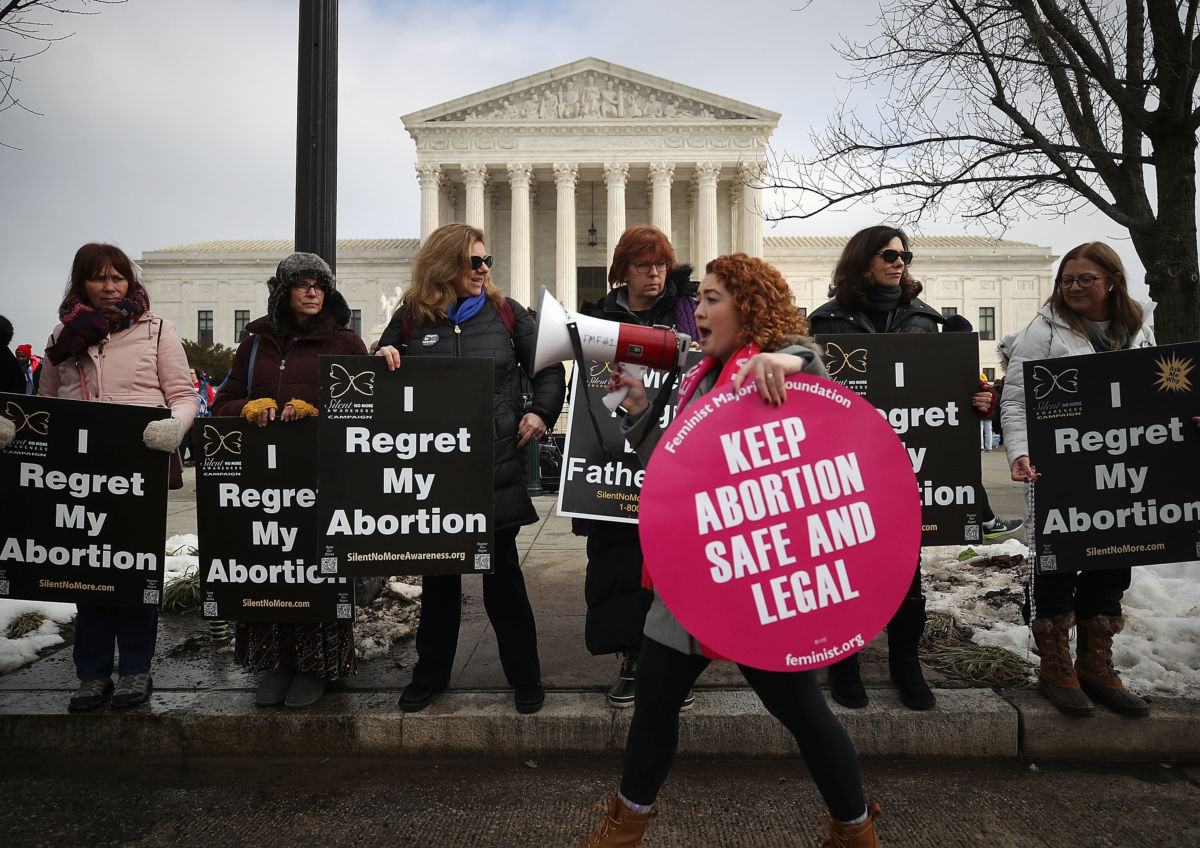When the idea of reversing a medication abortion first began to spread, it was based on the experiences of just seven pregnant people. Now, half a decade later, abortion opponents have made “abortion reversal” a mainstay of their advocacy.
Anti-choicers have pushed for multiple states to tell patients that medication abortions are reversible and provide information on how that procedure can be performed. Clinic protestors shout at patients that they can still reverse their abortions as they leave their appointments. And abortion opponents have made an entire “abortion reversal” division inside their crisis pregnancy networks.
As “abortion reversal” gains momentum, the movement’s only real obstacle is the naysayers who claim that the protocol doesn’t work. Anti-abortion activists could easily dispel those critics, thanks to a new study being conducted by medical practitioners. So why are they opposed to the idea?
There are two major mainstream medical arguments against the idea of “abortion reversal.” This procedure attempts to use large doses of progesterone to “counter” the effects of taking RU-486, or mifepristone, if a patient decides that they still want to be pregnant after ingesting the pill — but prior to taking misoprostol.
Most medical professionals are concerned about possible effects on the fetus — either from taking RU-486 and then continuing the pregnancy, or from the flood of progesterone in the system of the pregnant person.
The second problem many doctors have is that they aren’t clear if the progesterone actually has any effect on the pregnant individual. After all, a large number of mifepristone-only terminations are unsuccessful anyway, meaning what may look like a “reversal” might just be a failed abortion.
The only way to know for sure whether “abortion reversal” really works is to set up a scientific study — one with a control group, as well as a group that undergoes the protocol with progesterone. But because studies on pregnant people are notoriously difficult to conduct — and studies about abortion even more so — it looked like there would never be a way to actually test the premise.
At least until now. Mitchell Creinin, a professor at the University of California, Davis, has announced a bold plan to test the reversal protocol by specifically obtaining consent from pregnant people who want to terminate and are willing to undergo the progesterone treatment during the process.
VICE News reports:
Creinin says he’s about to find out whether abortion reversal is, indeed, real. Thanks to a recent grant of more than $400,000 from the Society of Family Planning, which supports abortion and contraception research, Creinin is currently spearheading what’s thought to be the first study on abortion reversal that uses randomized, double-blind testing and placebos — all hallmarks of the most rigorous forms of studies. It’s been approved by UC Davis’ institutional review board, and registered with ClinicalTrials.gov.
You’d assume that abortion opponents would be happy about the trials, since they could bolster their claims that the protocol works — all without needing to potentially harm those fetuses who will eventually be delivered. But that assumption would be wrong.
Instead, anti-choicers are adamantly opposed to the study, calling it “unethical” and claiming that it will put patients through the “trauma of an abortion twice.”
“Danielle White, general counsel for Heartbeat International, said in an email exchange, ‘That’s a lot to put these women and their babies through — for a study that seems so minimally helpful,’” Pregnancy Help News writes. Heartbeat International then claims that there’s likely to be very little difference in results between the control group and the non-control group, making it difficult to draw a conclusion.
And, remember: the initial “abortion reversal” study had just seven subjects.
Of course, we already know that abortion opponents will see what they want to see, regardless of what the study actually finds. They do, after all, believe fetuses can feel massive pain at the end of the first trimester, that birth control causes abortions and that telling people to stop having sex unless they are married will … stop people from having sex unless they are married.
No matter what this study uncovers, abortion opponents will still keep on pushing “abortion reversal” — even if there really isn’t any reversal at all.
Join us in defending the truth before it’s too late
The future of independent journalism is uncertain, and the consequences of losing it are too grave to ignore. To ensure Truthout remains safe, strong, and free, we need to raise $43,000 in the next 6 days. Every dollar raised goes directly toward the costs of producing news you can trust.
Please give what you can — because by supporting us with a tax-deductible donation, you’re not just preserving a source of news, you’re helping to safeguard what’s left of our democracy.
